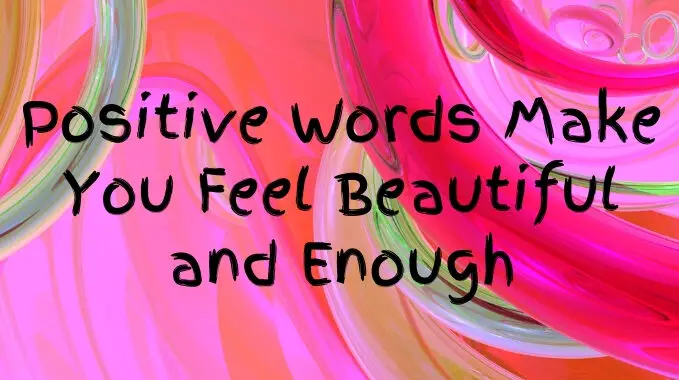Discover the results of our empowering experiment, where we measure the profound impact of positive words on youths. Explore how the use of uplifting language can inspire, motivate, and foster personal growth in young individuals. We have found an awesome experiment with valuable results relating to the impact of positive words on youths. Yes, positive words have an impact on people. And the impact is quick and powerful. Positive words have the power to make young people smile and feel better.
In a world where the language we use can shape our perceptions and influence our behaviors, it’s vital to understand the transformative potential of positive words, especially when it comes to our youth. Welcome to our empowering experiment, where we aim to measure and showcase the profound impact of positive words on young individuals.
In this unique exploration, we delve into the world of language and its effects on the minds and lives of our youth. We understand that the words we choose to use can inspire, motivate, and foster personal growth in young people, setting the stage for a brighter and more hopeful future.
Throughout this experiment, we will unveil the results of our research, shedding light on the tangible benefits of employing positive language when engaging with young individuals. Whether it’s within educational settings, family dynamics, or community outreach programs, our findings will highlight the power of uplifting words in nurturing the potential of our youth.
We’ll also share insights into how positive words can influence not only their self-esteem and emotional well-being but also their academic achievements and social interactions. Through real-world examples and case studies, we’ll illustrate the far-reaching impact of this language on their development.
Join us as we delve into this empowering experiment, and let’s together celebrate the transformative potential of positive words in the lives of our youth. Through our findings, we aim to inspire individuals, educators, parents, and communities to harness the power of language for the benefit of the next generation, fostering a more optimistic and thriving society.
Words have a significant influence on youth bullying for several reasons:
- Power of Language: Words are powerful tools of communication and influence. Negative or hurtful words can be used by bullies to demean, belittle, or intimidate their targets, causing emotional distress and harm.
- Peer Pressure: Youth often seek approval and acceptance from their peers. Bullies may use words to manipulate others into participating in bullying behavior or to maintain their social status within a group.
- Emotional Impact: Hurtful words can have a profound emotional impact on young individuals. Verbal bullying, which includes name-calling, insults, and derogatory language, can lead to feelings of shame, low self-esteem, and depression in victims.
- Normalization: When negative language is frequently used in a peer group or school environment, it can become normalized. This normalization of hurtful language can perpetuate a culture of bullying and make it more acceptable.
- Lack of Awareness: Some youth may not fully realize the harm their words can cause. They may engage in name-calling or teasing without understanding the emotional toll it takes on their peers.
- Cyberbullying: In the digital age, hurtful words can be spread quickly and widely through social media and online platforms. Cyberbullying often involves hurtful language and can have severe consequences for victims.
- Role of Bystanders: Words also influence youth bullying through the actions of bystanders. When bystanders use negative language or do not intervene to stop bullying, it can perpetuate the behavior and create a hostile environment.
- Emotional Escalation: Words can escalate conflicts among young individuals. What may start as a minor disagreement can quickly turn into a bullying situation if negative language is used to provoke or hurt others.
- Social Hierarchies: Bullying can be a means for some youth to establish dominance and control in social hierarchies. Hurtful words are often used to maintain power dynamics within peer groups.
- Emotional Release: In some cases, youth may use bullying as a way to cope with their own emotional issues. They may project their frustrations or insecurities onto others through negative language.
To combat the influence of hurtful words on youth bullying, it’s essential to promote awareness, empathy, and respectful communication. Educational initiatives, anti-bullying programs, and open dialogues about the impact of words can help create a more inclusive and compassionate environment for young individuals, reducing the prevalence of bullying behaviors.
In this video, you will find children writing good words to other children. In the experiment, they wanted to measure the impact of positive words on youths. Each boy wrote down a positive word or a positive phrase about each girl in class. The girls were doing some games in another room without knowing what the boys were doing for them. One by one the girls were invited in another room and asked to hold a blank poster board in their hands. Then the boys came also in the room and put sticky notes with their nice words on the board that the girls were holding. Then the girls turned the board towards them and read the positive words and phrases that the boys wrote for them. The reactions are incredible. You need to watch this video. Will so inspire your day. The experiment in words counted 36 girls and 36 smiles. So amazing.

Positive Words Research – Experiment Measuring The Impact Of Positive Words On Youths. Inspiring articles:

2 Comments
Kani · August 27, 2021 at 7:34 PM
beautiful words make a significant difference
Ioana · July 4, 2021 at 9:52 PM
Super
Comments are closed.